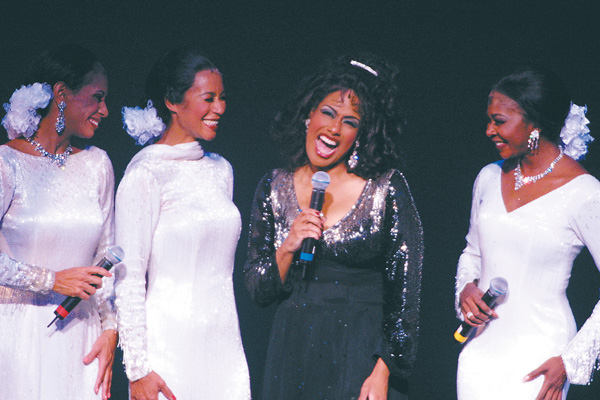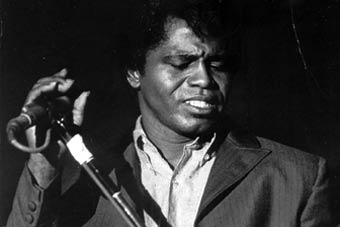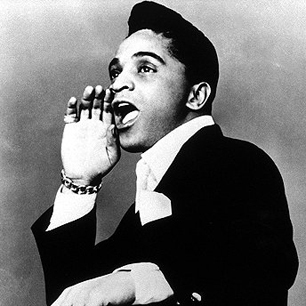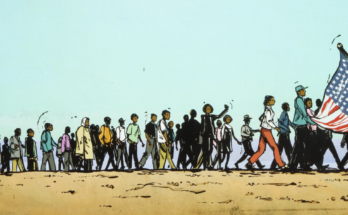Theater of the Stars brings “Dreamgirls” to the Fox Theatre on Aug. 2-11.
As the late 1950s grew into the mid-1960s and the first baby boomers became teenagers, those who pulled the levers of popular culture wanted to indulge them, make money off of them, that is. These indulgences took the form of fads that burned brightly, then faded: Hula hoops, the Twist, prime-time cartoons, surf music, bouffants, “The Mickey Mouse Club.”

And girl groups. For a few years, dozens of girl groups — trios, quartets and quintets — produced waves of three-minute pop songs full of (mostly) teenage innocence that played endlessly on yet another hot item of the moment, the AM transistor radio.
The girls in these groups — and sometimes they were girls, just 15 or 16 years old — were rarely known to the public as individuals. That made it easier for African-American singers like the Marvelettes (“Please Mr. Postman”) to be played on white radio stations. They weren’t anywhere near the cutting edge of the civil rights movement, but the fact that white teens were listening to music made by African-Americans was a cultural game-changer (see the musical Hairspray).
Girl groups were mostly obsessed with their boyfriends, whether they served in the Army (“Soldier Boy” by the Shirelles) or straddled a motorcycle (“Leader of the Pack” by the Shangri-Las). But they did provide an aspirational template for teenage girls of the era, singing into their hairbrushes in front of their mirrors, imagining themselves kicking down doors on the way to fame.

The Chiffons and the Crystals. The Dixie Cups and the Cupcakes. The Ronettes and the Marvelettes. Occasionally a guy or two would break through. Jackie Wilson, for example. Or James Brown, believed to be the model for Dreamgirls James “Thunder” Early.
Of all the girl groups that harmonized through that era, one reigned supreme. The Supremes became the most successful American vocal group ever, with 12 No. 1 Billboard singles. At their peak, they were the only musical act that could compete with the Beatles in popularity.

And according to most fans into pop history, the Supremes are likely the only girl group to inspire a Tony-winning Broadway musical: Dreamgirls. The show opened on Broadway in 1981, earning 13 Tony nominations and winning six awards. Publicly the show is said to be based on the Shirelles, James Brown and Jackie Wilson as well as the Supremes, but many observers note how close the Dreamgirls story is to the girl group known for such hits at “Baby Love,” “I Hear a Symphony” and “You Can’t Hurry Love.” For instance:
• Some names were barely changed. The Supremes / the Dreams. Diana Ross / Deena Jones.
• The Supremes started as the Primettes, the Dreams as the Dreamettes.
• Florence Ballard, the Supremes’ lead singer, was replaced by Diana Ross, who was prettier, had a more commercial voice and was a smooth front woman for the group. Effie Melody White, the Dreams’ lead singer, is replaced by Deena Jones, for the same reasons.
• The changes were driven by a powerful industry figure (Motown’s Berry Gordy, Dreamgirls’ Curtis Taylor Jr.), both of whom had an affair with the lead singer.
• The press was told to call Diana Ross “Miss Ross,” the Dreamgirls’ media is told to call Deena Jones “Miss Jones.”
• Ballard (like Dreamgirl Effie White Melody White) was eventually forced out of the group while in Las Vegas, for virtually identical reasons, including their weight. Afterward, the groups became Diana Ross and the Supremes and Deena Jones and the Dreams.

When Dreamgirls debuted, Ross reportedly felt that her life had been ripped off. Former Supreme Mary Wilson, on the other hand, titled her memoir Dreamgirl: My Life as a Supreme, leaving little doubt that she saw the connection everyone else did.
Even the most evanescent pop culture fads leave little echoes: TV Westerns are no longer the rage, but the FX series Justified is perhaps the best ever. Hula hoops aren’t so popular, but go to a big rock festival like Bonaroo and young women will hoop for hours.
Girl groups are still here. Wilson Phillips provided the musical finale for the movie Bridesmaids. The Spice Girls reunited to help open the 2012 London Olympics. These acts exist but are no longer part of a huge pop wave. Not long ago they formed the soundtrack of people’s lives, the one recaptured in Dreamgirls.
::
Phil Kloer has covered theater and pop culture in Atlanta for 28 years, for The Atlanta Journal-Constitution and the website ArtsATL.com.



